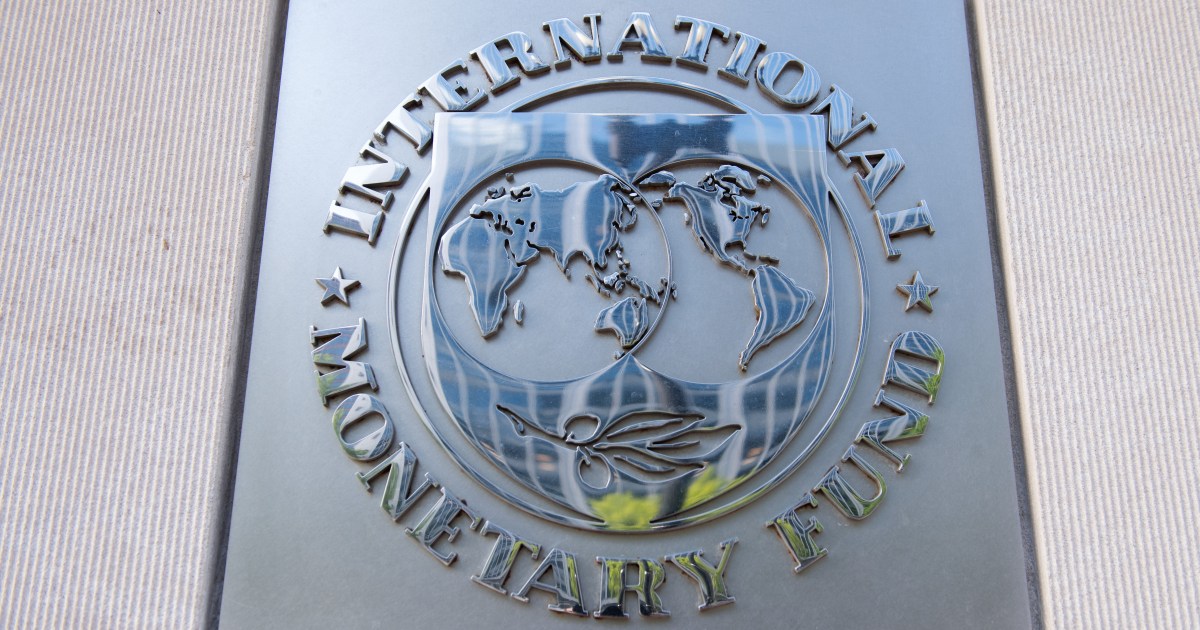A senior International Monetary Fund official said the fund is in contact with Tunisian authorities after a new government was formed last week, and further talks are expected soon about the type of aid the cash-strapped country needs.
Tunisia faces the risk of debt restructuring after it has made strenuous efforts to put its high public debt and fiscal deficit on a sustainable path.
Talks with the International Monetary Fund - over a loan that could open the door to bilateral aid from major donors - were derailed when Tunisian President Kais Saied suspended parliament last July, fired the prime minister, and took power in what his opponents called a coup.
Saeed appointed a new government last week, but did not hint at when he would relinquish his near-absolute control and begin the reforms needed to be able to deliver a financial rescue package.
Saeed is under international pressure to announce a clear roadmap for the return of politics in accordance with constitutional rules.
On Tuesday, the European Union called on Tunisian President Kais Saied to restore democratic order in his country.
upcoming meeting
"The IMF is closely monitoring the evolution of the political situation in Tunisia, and IMF staff is working with the authorities at the technical level," Jihad Azour, director of the International Monetary Fund's Middle East and Central Asia Department, told Reuters.
"Our team is in contact with them after the formation of the new government on October 11... I expect to meet with them next week online to discuss what the new government's plans are, reform priorities and what (the government's) relationship with the IMF will be," he added.
Foreign donors want Tunisia to undertake a series of credible economic reforms that would reduce subsidies and the public sector wage bill and reform losing state institutions, thus reducing deficits and debt.
In support of Tunisia at the beginning of the epidemic, the International Monetary Fund in April 2020 approved emergency financing of $750 million, and before that it had other financing lines to help support the country since Tunisia emerged as the only democracy after the Arab Spring.
The specter of debt default
Last Thursday, credit rating agency Moody's downgraded Tunisia's sovereign rating from B3 to CAA1 with a negative outlook.
Moody's said - in a report - that the downgrade to "CAA1" reflects weak governance and increased uncertainty regarding the government's ability to implement measures that would ensure renewed access to financing to meet high needs over the next few years.
This is the tenth time that Tunisia's sovereign rating has been downgraded by international rating agencies, since 2011.
Moody's warned that Tunisia would default on its debt if significant financing was not secured.
In this scenario, the possibility of public sector debt restructuring that may result in losses for private sector creditors will increase, the agency said.
Moody's expects Tunisia's budget deficit to reach 7.7% of the country's GDP in 2021, and 5.9% in 2022.
This classification comes with the economic contraction rate reaching 8.8%, in light of an unprecedented rise in the external debt ratio to about 110% of the gross domestic product, while the unemployment rate jumped to about 17.8% during the first 3 quarters of 2021.
Subsequently, the Director General of Finance and External Payments at the Central Bank of Tunisia, Abdelkarim Lassoud, denied the circulating statements about Tunisia's inability to repay its foreign debts and thus heading to the "Paris Club" (economic) to reschedule the debts.
The Tunisian official stated - in press statements - that Tunisia is able to fulfill its foreign commitments in the remainder of 2021.
"With the conclusion of an agreement with the International Monetary Fund and the launch of activating reforms at the beginning of 2022, there will be no problem in repaying the debts," he said.
The Tunisian official considered that reaching an agreement with the International Monetary Fund is the first solution to introduce important reforms to the Tunisian economy.
The World Bank expected - in a report issued a few days ago - that the Tunisian economy will grow by 2.9% this year, which is less than the previous forecasts of the Tunisian government of 3.9% growth, and another forecast by the International Monetary Fund of 3.2%.
Official data a few days ago showed that Tunisia’s foreign exchange reserves declined by 9.5% in 9 months, to 20.9 billion dinars (7.4 billion dollars) last September, from about 23 billion dinars (8.16 billion dollars) during the same period in 2020.
The Central Bank of Tunisia expects the public debt to reach 109.23 billion dinars ($39.18 billion) by the end of 2021, of which 74.21 billion dinars ($26.5 billion) is external debt.

